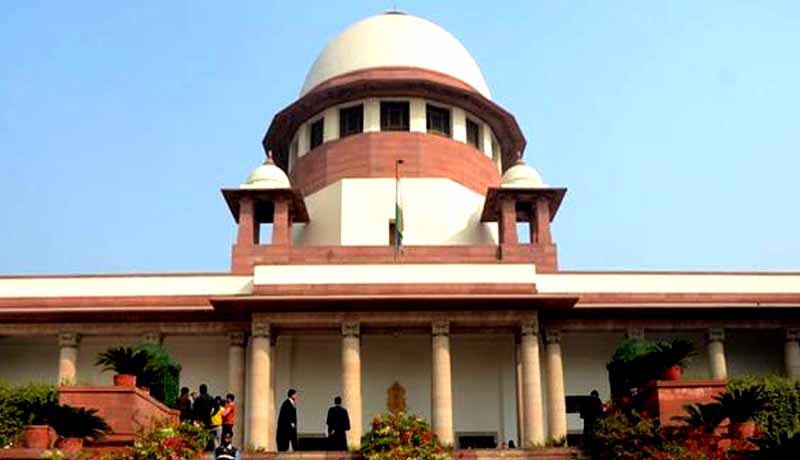Iron & Steel Products are “Declared Goods" subject to provisions of Section 15 of the CST Act: Supreme Court [Read Judgment]

Ambiguity – Supreme Court – Tax – Taxscan
Ambiguity – Supreme Court – Tax – Taxscan
The Supreme Court in a significant ruling, held that the products such as “iron and steal” are “declared goods within the meaning of section 14 of the Central Sales Tax Act and therefore, are subject to section 15 of the Act. Accordingly, the Court held that only 4% tax are leviable to these products. The Court further observed that the identity of the iron and steel goods had not changed at the point of taxability.
The claim of the Appellants was that only 4% tax is leviable in respect of civil construction works under the Karnataka Sales Tax Act as well as the Karnataka Value Added Tax Act, 2003 since the iron and steel products that are reinforced for cement concrete used in buildings and structures, remains exactly the same goods at the point of taxability – that is, the point of accretion, and that mere cutting into different shapes and bending does not make these items lose their identity as declared goods.In the light of various judicial decisions, the Appellants submitted that, mere cutting and shaping of these products would not amount to “manufacture”. The Appellants relied upon the decisions in Builders' Assn. of India v. Union of India, (1989) 2 SCC 645, and Gannon Dunkerley and Co. v. State of Rajasthan, (1993) 1 SCC 364 in which the Apex Court held that under the Karnataka Value Added Tax Act, 2003, the iron and steel products that are reinforced for cement concrete used in buildings and structures, remains exactly the same goods at the point of taxability – that is, the point of accretion, and that mere cutting into different shapes and bending does not make these items lose their identity as declared goods.
The Revenue, on the other side argued that higher rates are leviable on the said products since they did not continue as iron and steel products but somehow became different goods at the point of accretion. The Revenue contended that though the said products are declared goods they are covered under section 15of the Central Sales Tax Act, it is difficult to say that the goods remain the same and not changing its identity at the point of taxability.
While accepting the contentions on behalf of the Appellants, the Court found that from the decisions cited by them, two important propositions can be extracted. First one is that works contracts that are liable to be taxed after the 46th Constitution Amendment are subject to the drill of Article 286(3) read with Section 15 of the Central Sales Tax Act, namely, that they are chargeable at a single point and at a rate not exceeding 4% at the relevant time.Further, the point at which these iron and steel products are taxable is the point of accretion, that is, the point of incorporation into the building or structure.
The Court further observed that the Revenue has wrongly cited the decision in State of Tamil Nadu v. M/s. Pyare Lal Malhotra and Others, (1976) 1 SCC 834. In the opinion of the Court, “Given the fact situation in these appeals, it is obvious that paragraph 10 of this judgment squarely covers the case against the State, where, commercial goods without change of their identity as such, are merely subject to some processing or finishing, or are merely joined together, and therefore remain commercially the same goods which cannot be taxed again, given the rigor of Section 15 of the Central Sales Tax Act. We fail to see how the aforesaid judgment can further carry the case of the revenue".
Read the full text of the Judgment below.


